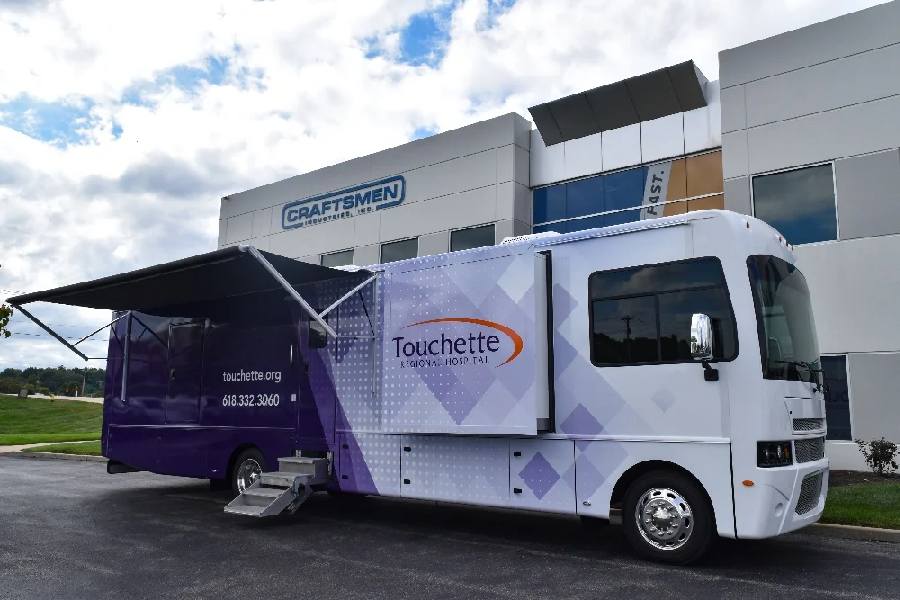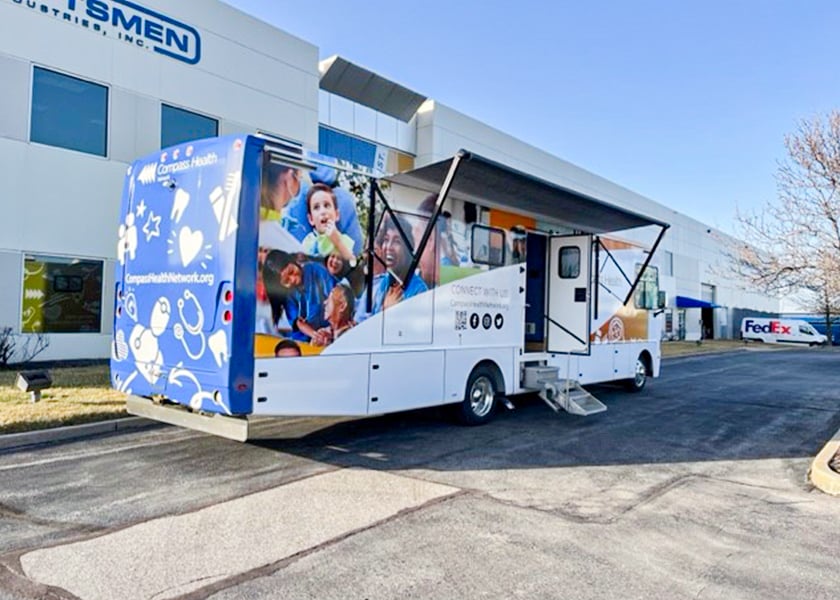What Equipment Fits in a Mobile Medical Vehicle Setup
Discover what equipment fits in a Mobile Medical Vehicle setup. Learn how Craftsmen industries designs mobile medical units and clinics for accessible healthcare.
A mobile healthcare service depends heavily on the design and equipment included in its setup. Organizations like Craftsmen industries specialize in developing custom solutions that make it possible for medical teams to deliver care directly in communities. The success of a Mobile Medical Vehicle relies on having the right tools to provide both general and specialized health services without compromising quality. When properly outfitted, these vehicles become self-contained medical environments capable of performing consultations, diagnostics, and even treatment on the go.
Importance of Proper Equipment in Mobile Healthcare
Mobile medical operations serve a variety of purposes, from general health screenings to specialized services like dental care, imaging, or women’s health programs. To meet these needs, the equipment inside must mirror the capabilities of a small clinic. Unlike stationary facilities, mobile setups require compact, durable, and energy-efficient tools that can function reliably while in transit or during field use. The equipment chosen determines not only the type of care delivered but also the efficiency and safety of medical teams working inside.

Core Medical Equipment in Mobile Medical Units
The foundation of any mobile medical setup is its general examination equipment. Examination tables, diagnostic kits, stethoscopes, and portable vital sign monitors form the baseline of patient care. These essentials make it possible for healthcare providers to perform routine checkups and assess patients quickly. Depending on the vehicle’s purpose, additional tools may be added to expand its capabilities. For example, a mobile unit dedicated to general practice may carry basic laboratory analyzers, while a vehicle focused on women’s health might include ultrasound machines or gynecological equipment.
Diagnostic and Imaging Equipment
Many mobile medical units require diagnostic capabilities to support on-site decision-making. Portable X-ray systems, ultrasound machines, and ECG monitors are common features. These tools allow clinicians to evaluate patients immediately, reducing the need for referrals to distant hospitals. Imaging solutions are typically designed to be compact and lightweight while maintaining professional-grade accuracy. In some setups, telemedicine technology is integrated, enabling images and data to be shared with specialists remotely for consultation. This is particularly valuable for rural or underserved areas where access to larger medical facilities is limited.
Laboratory and Testing Equipment
An effective mobile medical clinic for sale often comes with built-in laboratory testing features. Point-of-care testing devices can analyze blood samples, detect infections, and monitor chronic conditions such as diabetes or high cholesterol. Compact analyzers and centrifuges make it possible to deliver same-day results, which helps speed up treatment decisions. For more advanced mobile clinics, diagnostic tools may include rapid testing kits for infectious diseases or portable devices for biochemical analysis.
Specialized Care Equipment
Depending on the intended services, some vehicles are designed to focus on a specific area of healthcare. Dental mobile units, for instance, may carry dental chairs, sterilization systems, suction devices, and portable X-ray equipment for oral care. Ophthalmology-focused setups could feature vision testing stations, slit lamps, and specialized diagnostic devices. Similarly, women’s health vehicles often incorporate mammography units, gynecological examination chairs, and ultrasound equipment. The adaptability of these vehicles allows communities to access specialized care without the need to travel long distances.
Supportive and Utility Equipment
In addition to clinical tools, supportive equipment plays a crucial role in the functionality of the vehicle. Reliable power supply systems, water tanks, sterilization units, and waste disposal systems ensure smooth operations and compliance with health regulations. Lighting systems, climate control, and soundproofing contribute to patient comfort and create a professional medical environment. For staff safety, the layout is typically designed with ergonomic considerations to allow efficient workflow while minimizing fatigue.
Key Utility Features Found in Mobile Medical Vehicles
- Climate-controlled interiors for patient comfort
- Reliable power sources such as generators or solar panels
- Secure storage for medical supplies and medicines
- Waste management systems to ensure hygiene standards
Integration of Digital Health Tools
Modern healthcare increasingly relies on digital solutions, and mobile clinics are no exception. Electronic health record systems can be incorporated into the setup, allowing seamless patient data management. Telemedicine equipment, such as high-resolution cameras and secure communication networks, expands the range of services by connecting mobile teams with specialists elsewhere. This integration not only improves care delivery but also ensures that patients’ medical histories are preserved and accessible for future visits.
Mobility and Space Utilization
The interior layout of a Mobile Medical Vehicle is carefully planned to maximize limited space. Foldable equipment, multi-functional furniture, and strategically placed storage units help create a smooth workflow. Each section of the vehicle is often designated for specific tasks, such as examinations, testing, or consultations. Proper space utilization ensures that healthcare professionals can work efficiently even in compact environments while still maintaining patient privacy.

Benefits of Properly Equipped Mobile Clinics
A well-equipped mobile medical clinic delivers a wide range of benefits. It increases healthcare accessibility for remote or underserved communities, provides rapid response in emergencies, and allows targeted outreach programs such as vaccination campaigns or health education drives. By bringing healthcare directly to the population, these vehicles help bridge the gap between urban medical centers and rural communities. They also reduce patient wait times and transportation costs while ensuring continuity of care in areas that may otherwise lack resources.
Conclusion
Equipping a mobile healthcare unit requires careful consideration of both medical and supportive tools. From diagnostic devices and examination equipment to digital health integration and utility systems, every component contributes to the overall effectiveness of the vehicle. Companies like Craftsmen industries have demonstrated how versatile designs can meet diverse healthcare needs while maintaining mobility and efficiency. By investing in the right equipment, mobile medical setups ensure that quality healthcare can reach people wherever they are, ultimately improving community health outcomes.
FAQs
What types of medical services can a mobile medical vehicle provide?
A mobile unit can support a wide range of services including general health checkups, diagnostics, dental care, women’s health, vision testing, and laboratory screenings depending on its equipment.
How is power managed in mobile medical units?
Most vehicles use onboard generators, battery systems, or solar panels to ensure continuous power for medical devices, lighting, and climate control.
Can mobile clinics handle emergency care?
Yes, many mobile clinics are equipped with basic emergency equipment such as defibrillators, oxygen supply systems, and first aid tools to stabilize patients before transferring them to a hospital.
What is included in a mobile medical clinic for sale?
A mobile medical clinic for sale typically comes with examination tables, diagnostic equipment, supportive systems like water and waste management, and customization options for specialized care.
Are mobile medical units customizable?
Yes, they can be tailored to focus on specific healthcare services such as dental, ophthalmology, or maternal care, with equipment customized to match the intended use.